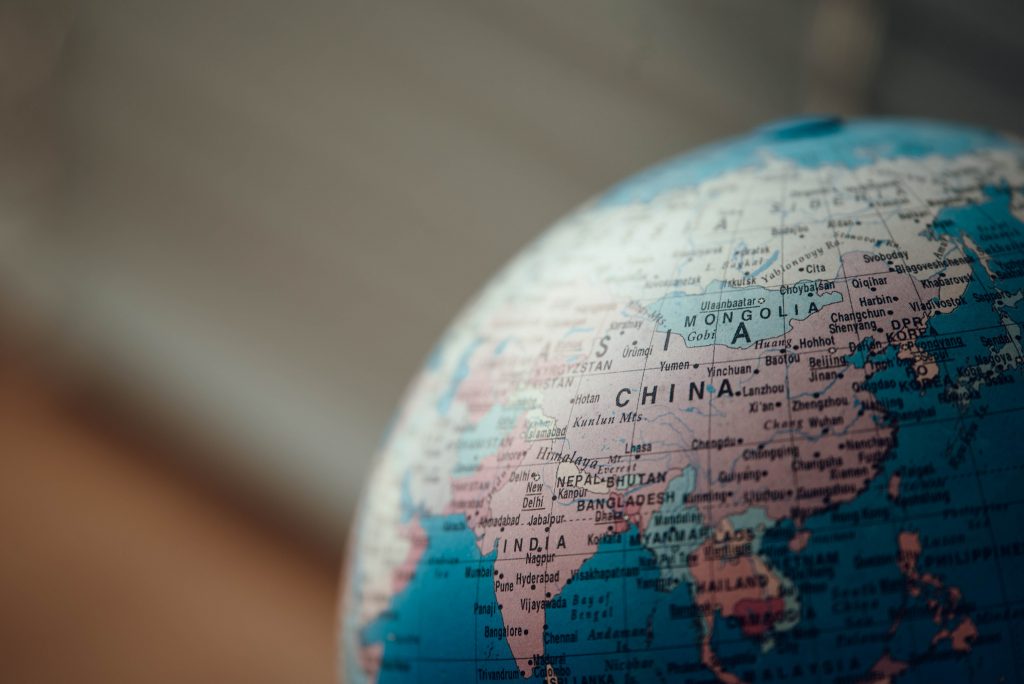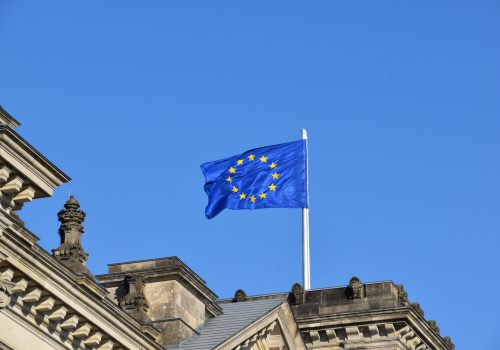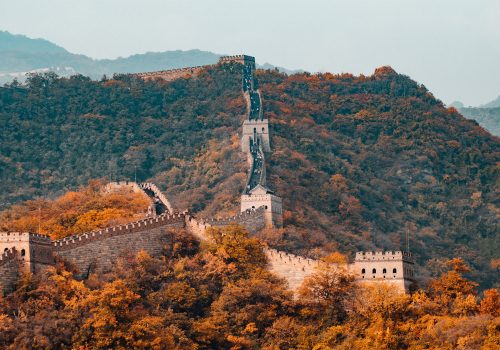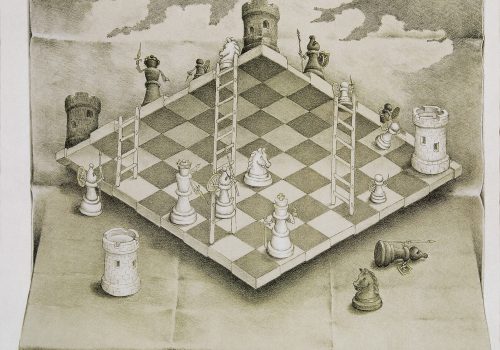GeoTech and smart partnerships: potential AI & China futures
The Atlantic Council is honored to partner with the Rockefeller Foundation via a grant that focuses on data and AI efforts by China around the world. We started these activities in the middle of 2019 and they were part of a bigger plan to launch the new Atlantic Council GeoTech Center in 2020 – focused on the geopolitics of new technologies and advances in data.
After a successful launch, we are now publishing the first part of our work with the Smart Partnerships Series. These publications come at a crucial time, with COVID-19 impacting and reshaping the world. They are an indication of the importance of data and AI, as they are used in both the response and recovery from this pandemic.

The global tech choices we make in the world – choices by China, Europe, Africa, India as well as other parts of Asia, South America, and North America to include the United States – will determine whether data and AI activities benefit us all on this planet. The Atlantic Council GeoTech Center exists to championing positive paths forward that nations, economies, and societies can pursue to ensure new technologies and data empower people, prosperity, and peace. We do this because, even before COVID-19, it was clear that global tech cooperation was “at a precarious junction“.
As you read these event recaps and reports, you will see important discussions about data and AI norms in China, Europe, and the United States. A pivotal question for the decade ahead: will China pursue one approach for its society, the United States adopt a dramatically different one, and Europe advance “a third way” with regards to nation-state, economic, and social uses of data and AI? From the discussions associated with this series, it does appear we may face three different data and AI paths for the world.
We have to ask ourselves: Are “great power politics” detracting from what we could do as inter-connected societies globally? After all, there is no question that in 2020, our world is dramatically different than the post-World War II era. We live in a world where now global, private sector, transnational entities often have greater reach than individual nations by themselves.
In early January, an Atlantic Council delegation was able to meet with officials in China to hear their own views regarding norms involving data and AI. Even then, before COVID-19 put restrictions on borders and disrupted the global economy, there were warning signs about the significant “dangers of decoupling” with regards to data and AI in China compared to Europe and the United States. Yes, geopolitical tensions exist between both nations – yet if we each take separate paths, the world will not be better as a result. We must find ways to work together on data and AI activities across nations and sectors in ways that benefit people, prosperity, and peace – in doing so we may prevent future pandemics, famines, or other natural disasters that impact us all on planet Earth.
We must find ways to work together on data and AI activities across nations and sectors in ways that benefit people, prosperity, and peace — in doing so we may prevent future pandemics, famines, or other natural disasters that impact us all on planet Earth.
Here at the Atlantic Council, we have more work to do with the Smart Partnerships for Global Challenges project, including discussions with experts in India and Africa as well as a summary report on opportunities for collaboration. We share these recaps, as well as additional reports regarding AI principles and whether data and AI will benefit or challenge developing nations, with the hopes they will inform discussions about the extent to which different societies are willing to use data and AI to benefit collective interests – potentially at the expense of individual choices or the freedoms associated with open societies. We also share these recaps hoping they will illuminate possible paths through which China, Europe, and the United States can collaborate on shared activities of interest involving data and AI. Looking towards the future, it may be that we find new ways of using data and AI across borders that improve food supply chains, security, and co-develop a “global immune system for the planet” – or maybe advance other global activities that improve the state of early warning crisis response networks globally?
In addition, I would like to thank the Atlantic Council’s Foresight, Strategy, and Risks (FSR) Initiative for their assistance with this initiative as we prepared to launch the GeoTech Center. Special thanks goes to Dr. Mathew Burrows, director of the FSR Initiative, and Julian Mueller-Kaler, resident fellow both at the GeoTech Center and at the FSR Initiative, for writing the report recaps and for their ongoing work on evaluating China’s role as a global citizen. These readings are timely and important as global tech choices matter – and will impact us all.
Onwards and upwards together,
Dr. David Bray
Inaugural Director
Atlantic Council’s GeoTech Center @acgeotech
AI & China: Smart Partnerships for Global Challenges










